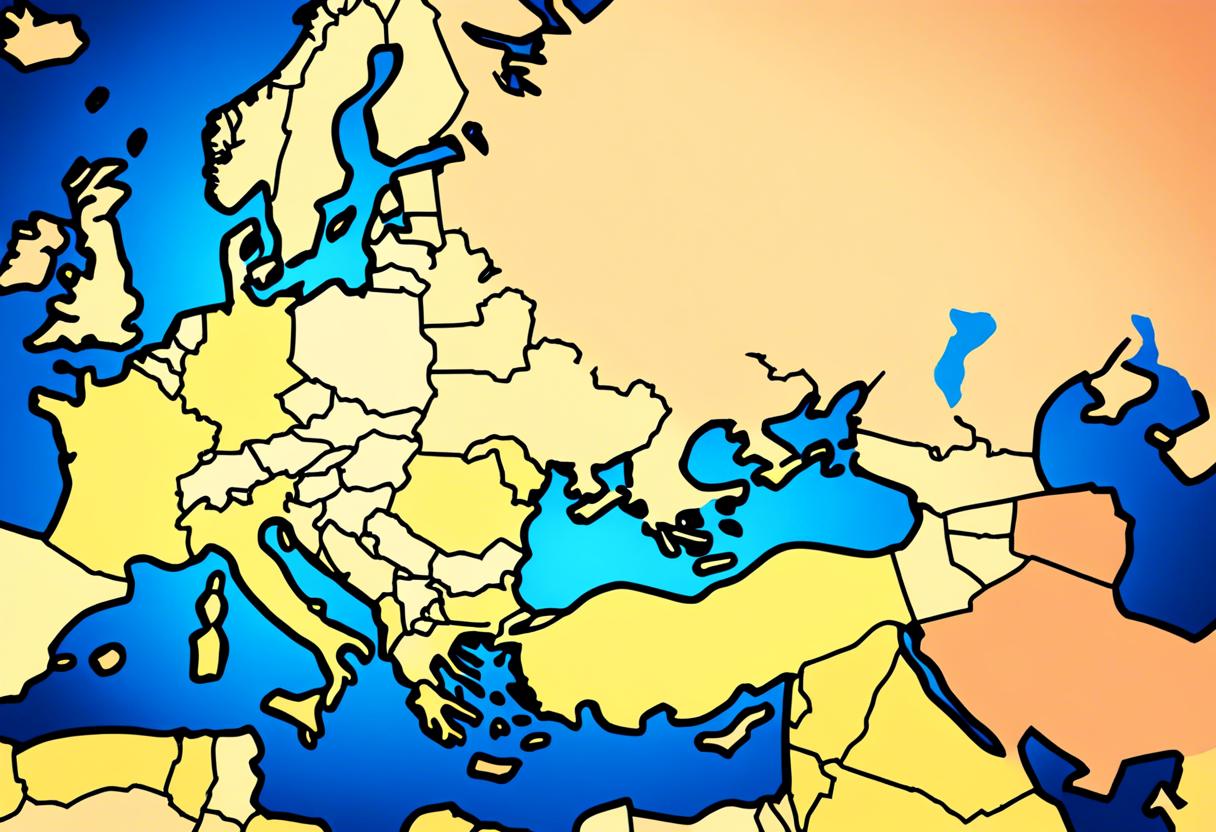Former literary professional Oleksandr Mykhed has shifted his career path, departing from the realm of literature to join the Ukrainian territorial defense forces amid the conflict with Russia. Mykhed is a prominent figure within The Language of War, yet there are additional voices: Yevhen Tereshchenko, who has embraced the life of a full-time soldier; Lara Yakovenko, an exiled artist; Yevhen Spirin, the journalist tasked with the grim duty of unearthing bodies from mass graves; and Tetyana Mykhed, the author’s mother, a literature scholar who along with her spouse endured the horrific events in Bucha and Hostomel. Roxolyana Gera, a dedicated lawyer, supplements this narrative with her stark database of the atrocities, civilian losses, and destruction of infrastructure inflicted by the Kremlin’s forces.
Among all the contributors, Mykhed’s voice is the loudest. He harbors an intense animosity towards all Russians, blaming them for the smallest to the largest offenses. According to him, every part of his being is filled with this hatred, which encompasses the entirety of the Russian collective consciousness and its major symbols.
Mykhed, however, wrestles with the discrepancy between his emotional bias and rational analysis. In his perception, Russian literature is a tool for advocating imperialism, and he illustrates this point with the example of Aleksandr Solzhenitsyn. Solzhenitsyn, a staunch communist critic celebrated in the West, returned to Russia to express nationalistic viewpoints that significantly influenced the mindset and behaviours of Vladimir Putin. Yet, would the same be true for Anna Akhmatova, a poetess born in the Ukrainian city of Odesa, who adopted the Ukrainian surname Gorenko? As a display of contempt, Mykhed refers to her, “tsvetaeva, bulgakov and bunin” in lowercase letters.
Moreover, he regularly employs the compound word ‘ruscism’, associating Russia with fascism and racism. He insists that Russian culture should bear the brunt of global condemnation.
Mykhed expresses sympathy for Tchaikovsky, whose music has been ostracized by some Western musicians due to his nationality. According to Mykhed, if Tchaikovsky were alive in modern Russia, he would endure persecution for being a homosexual.
Mykhed consistently places Dostoevsky under scrutiny, emblematic of the Russian expansionist drive, but during his lifespan, he was incarcerated and faced staged execution at the hands of the imperial station in St Petersburg. Mykhed considers every Russian culpable, without exception. This includes Dmitriy Muratov, the chief editor of Novaya Gazeta, who auctioned off his Nobel Prize medal, amassing over $100 million for Ukrainian refugees. He is deemed as culpable as Yevgeny Prigozhin, the culprit behind the merciless Wagner mercenaries, who ruthlessly slaughtered ordinary Ukrainian citizens.
Mykhed’s motivations originate likely from strong emotional feelings, which Roxolyana Gera vividly portrays in her dispassionate documentations of happenings, highlighting a significant portion of the book. Her contributions are presented bluntly, without exaggerated descriptions, such as reports on a missile attack on private homes on 17 November in Viliansk, Zaporizhzhia region, resulting in nine casualties. Dozens of these nuanced narratives laid down detail on incidents of death, sexual assault and the demolition of infrastructure.
Civilian fatalities in Ukraine, to the present moment, exceed 30,000.
Yevhen Spirin, a journalist undertaking the sombre task of unearthing bodies, hails from the city of Luhansk, dubbed as Lugansk by its Russian-dominant denizens and widely recognized among the elderly Soviet populace as Voroshilovgrad, named after Stalin’s obsequious field marshal, Kliment Voroshilov, who was native to the now combat-ravaged town of Bakhmut.
Spirin is an alumnus of Luhansk University and acknowledges the split in alliances in the city. He bemoans that many of his classmates and other acquaintances remained loyal to the Kremlin-endorsed Luhansk Democratic People’s Republic (LDPR). He shows his bewilderment, questioning why those emerged from the same background as his are still supporting such regimes. As a result of this division, Spirin no longer recognises Luhansk as his home.
Lara Yakovenko’s tale recounts a well-known experience of packing up personal items, medication and pets, along with her elderly mother, to escape from the war. As I acted as an observer for the Organisation for Security and Co-operation in Europe, it became apparent that nearly every woman who worked as my local aid, along with their acquaintances, have been evacuating from Ukraine with their young families in search of safety. Currently, one of them resides here in Ireland.
There is an exploration of the longstanding American right-wing fascination with foreign dictators, known as America Last, through the lens of US fascism.
Yevhen Tereshchenko, a seasoned soldier acquainted with the ruthlessness of war, shares a fascinating dialogue in the book with a retired Russian officer residing in Crimea. This dialogue, strikingly contrasting Mykhed’s viewpoint, stands out for its absence of resentment.
Adding an ironic twist, it is revealed that Tetiana, Mykhed’s mother, is the daughter of a Russian woman named Raisa, thereby making Oleksandr’s grandmother a Russian native.
Mykhed concludes by sharing his need for simplistic stories that encapsulate rage, patriotism and a life governed by the Old Testament’s principles. These were the elements he aimed to infuse in his writing of The Language of War.
In a poignant admission, he shares his internal struggle of wanting to both forget what has transpired and the need to etch it forever in memory.

